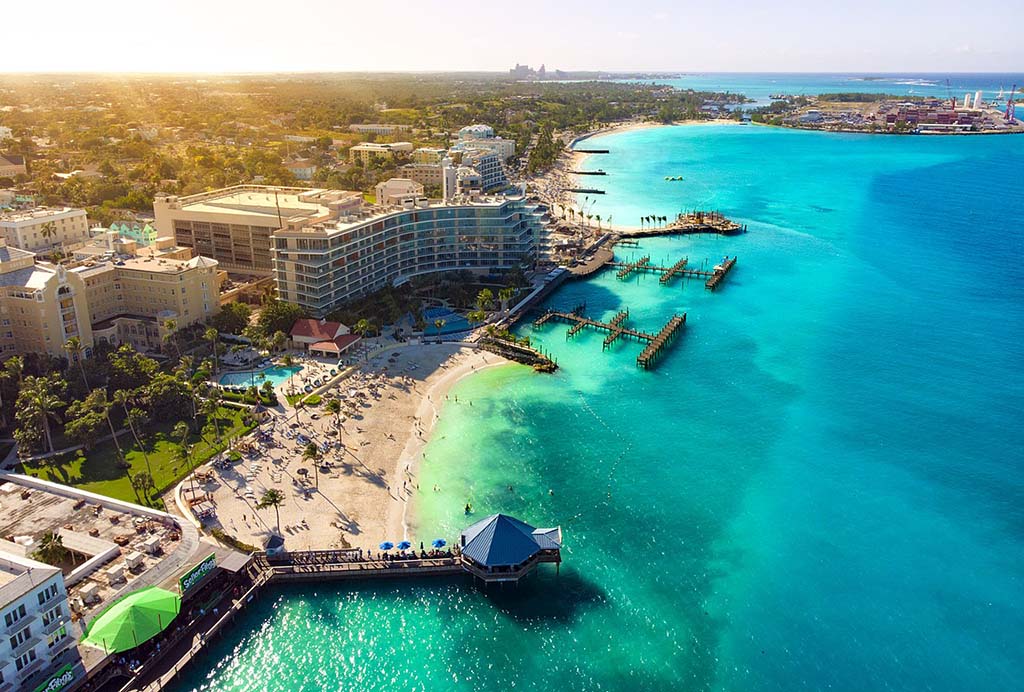Nassau is the capital city and chief port of the Commonwealth of the Bahamas, an archipelago of over 700 islands that stretch from 50 miles southeast of Florida. Nassau is located on New Providence Island and is the largest city in the Bahamas; approximately two-thirds of the nation’s people live in Nassau with a population of 210,832 in and around the city (2000 estimate).
In 1492, Christopher Columbus made his first landfall on another Bahamian island, San Salvador, and is credited with discovering the site of Nassau that same year. Most of the indigenous Lacuyan people died from contact with the Spanish, who deported and enslaved the natives in the mines of Hispaniola. Later the indigenous population was replaced by enslaved people brought from West and Central Africa.
In 1656, the first European settlement was established in Nassau by a group of English settlers who initially named the site Charles Towne for King Charles II of England. In 1666, Charles Towne became the capital city of the colony. In 1694, the city was attacked and destroyed by Spain for harboring pirates and was rebuilt a year later and renamed Nassau after the family name of William III of England.
In 1776, during the American Revolutionary War, Nassau was briefly held by the Americans. After the war many Loyalists, black slaves, and freedmen emigrated from the United States to the Bahamas, creating a significant population increase. Slavery was outlawed in the Bahamas in 1834, but during the U.S. Civil War Nassau served as a supply base for Confederate blockade runners.
Historically, the mostly black population of the Bahamas was dominated by a white minority of wealthy farmers and merchants. This began to change with the 1942 Burma Riots, when black Bahamians constructing a US Air Force base agitated for pay that was comparable to their foreign and white coworkers. Then, in 1953, the Progressive Liberal Party was founded by a group of middle class mixed-race professionals. Universal suffrage was won in 1962 and Sir Lynden Oscar Pindling, a black lawyer, became Prime Minister from 1967-1992, ending white minority rule. The Bahamas became independent from the United Kingdom in 1973, but remains connected to the UK through the commonwealth.
Today, Nassau is world famous as a tourist destination, known for its beaches and tropical vegetation. Visitors also enjoy Paradise Island, a resort community located across the harbor. In 2002, Nassau hosted the First World Music and Jazz Festival; and the city opened the National Gallery of the Bahamas in 2003. The College of the Bahamas is located there as well as the Parliament Building, Christ Cathedral Church, Ardastra Gardens, and other key landmarks.

